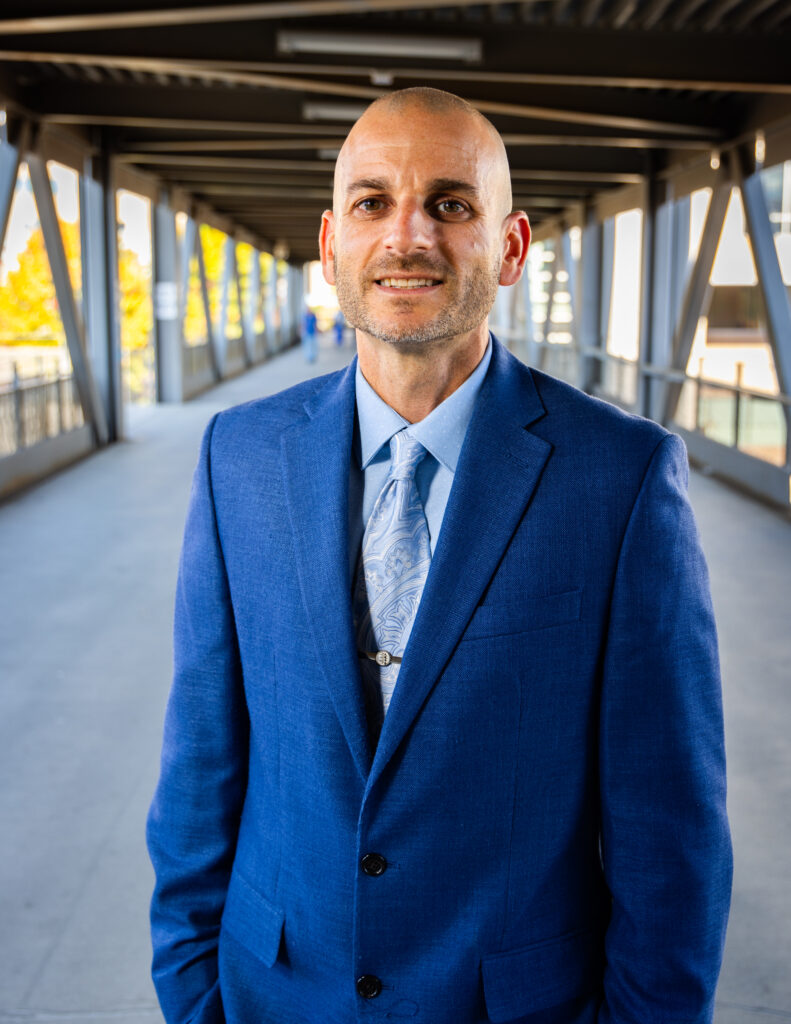

Michael Galgano, MD
Director, Spinal Oncology & Spinal Deformity
Vice Chair Hillsborough Operations
Chief Quality Officer
Clinical Associate Professor
UNC Health’s spinal neurosurgery team provides state-of–the-art management and an individualized treatment strategy for patients with diseases of the spine, including spinal tumors, complex adult and adolescent spinal deformities, and degenerative conditions of the spine. Our spinal neurosurgeons specialize in complex spinal surgery and have gone through rigorous training and fellowships. The spinal neurosurgery team works closely with the multidisciplinary spine program at UNC, which includes physical medicine and rehabilitation, pain management, physical therapy, and clinical neuro-psychology.
Our spinal neurosurgeons treat patients with the following conditions of the spine:
Our spinal neurosurgeons treat patients with cervical or lumbar pain and stenosis caused by age-related degeneration. We also treat patients with spondylolisthesis and spondylolysis.
Spondylolysis is the most common cause of back pain in young athletes. This condition refers to a crack or fracture in one or more of the vertebrae. The weakened vertebrae can lead to a condition called spondylolisthesis.
Spondylolisthesis is a slipped vertebra at the base of the spine that can be caused by trauma, birth defects of the spine, serious sports injuries, infection, or disease. The slipped vertebra can push on surrounding nerves, which can cause muscle spasms in the hamstrings and shooting pain down the legs. Not all patients with spondylolisthesis will require surgery, but if more conservative treatment methods such as medication or physical therapy don’t provide pain relief, surgical treatment may be recommended.
UNC’s spinal neurosurgeons treat patients with fractures of the spine due to osteoporosis, burst fractures, and fracture-dislocations caused by high-energy trauma. Spinal fractures vary widely in severity.
Imaging and neurological tests are used to examine patients with spine fractures to determine necessary treatment. When other conservative treatment methods are unable to relieve pain caused by a spinal fracture, surgery may be recommended. Our spinal neurosurgeons offer minimally invasive procedures, such as vertebroplasty and kyphoplasty, to treat patients to stabilize the fracture and reduce pain. Spinal fusion surgery may also be recommended for patients with spinal fractures.
When a spinal fracture is caused by osteoporosis, a noticeable curve in the spine forms. Using minimally invasive spine surgery, our spinal neurosurgeons can repair the collapsed vertebrae using surgical cement.
UNC Neurosurgery treats patients with spinal deformities that sometimes require surgery, including adult and adolescent scoliosis. Scoliosis is a curve in the spine often diagnosed during childhood or adolescence. When the condition begins or is diagnosed post puberty, it is called adult scoliosis. Scoliosis causes a curve in the spine that puts stress on the joints and causes pinched nerves resulting in moderate to debilitating back pain. It can also result challenges maintaining a normal posture.
A spinal tumor can cause patients to have weakened muscles, loss of sensation, muscle spasms down the legs, severe back pain, or trouble controlling bowel or bladder function.
Spinal tumors are abnormal masses of tissue that can be cancerous surrounding the spinal cord or spinal column. The type of spinal tumor surgery is determined by the size, location, and type of spine tumor. This will be determined by medical imaging and if necessary, a biopsy of the tumor to determine if it is benign (non cancerous) or malignant (cancerous). Treatment of a spinal tumor may also include radiation and chemotherapy.
Surgery is typically the best treatment option for patients with spinal tumors. Our spinal neurosurgeons frequently treat patients with astrocytomas, hemangioblastomas, meningiomas, schwannomas, and ependymomas.
Our pediatric neurosurgeons treat spinal tumors in children.
UNC Health’s multidisciplinary neuro-oncology clinic offers streamlined, high quality care for patients with brain tumors and spine tumors by bringing all of the tumor specialists together in one convenient clinic location.
UNC Neurosurgery faculty members will collaborate with other specialists from UNC Health to provide comprehensive care for all patients treated at the neuro oncology clinic. This team approach will allow our physicians to address each individual patient’s needs, and then make an informed decision on the most effective treatment.
Our spinal neurosurgeons offer comprehensive management of tumors invading the spinal column. We offer a multidisciplinary team approach involving surgical oncology, radiation oncology, plastics, and neurosurgery to individualize patient care. Metastatic or primary vertebral body tumors are classified according to the location in the spine or veretebral column.

Our spinal neurosurgeons perform minimally invasive spinal fusion surgeries. Minimally invasive techniques are also used to perform discetomies on patients with disc injuries putting pressure on the nerves or spinal cord, and on patients with spinal trauma. These procedures are typically performed when more conservative treatment methods, such as medication or physical therapy, fail to provide pain relief.
Minimally invasive spinal fusion is used on patients who have severe chronic back pain. During the procedure, a spinal neurosurgeon creates a small incision in the back to access the spine. The spinal neurosurgeon then fuses together two or more vertebrae of the spine to relieve pressure on the nerves and spinal cord.
A minimally invasive discectomy is a surgical procedure used to remove a herniated or degenerative disc in the lower spine for patients with disc injuries or diseases. Physical therapy may be recommended after surgery to aid in a patient’s recovery.
The benefits of minimally invasive spine surgery include smaller incisions, shorter recovery, reduced risk of surgical complications, less blood loss during surgery, and a reduced risk of infection.
Cervical disc arthroplasty is an alternative surgical treatment to fusion surgery. Not every patient with arm pain caused by a pinched nerve (radiculopathy) qualifies for a cervical disc replacement. During the procedure, a spine arthroplasty device, or artificial disc, is placed in the spine. If medication and physical therapy have failed to relieve your back pain, consult with your spinal neurosurgeon to find out if you are a candidate for cervical disc arthroplasty.
Our spinal neurosurgeons treat other conditions and diseases of the spine, including Syringomyelia and Chiari malformation. Syringomyelia is a condition where a fluid filled sack forms on the spinal cord. This condition is extremely rare, but can cause pressure on the spinal cord, which can cause pain, a loss of pain sensation, mobility problems, facial pain, and weakness in the back, shoulders, arms, or legs. Patients may also experience an inability to feel hot or cold. Our spinal neurosurgeons may recommend surgery to relieve pressure on the spine.
Patients with a Chiari malformation have brain tissue that extends into the spinal canal, which can obstruct cerebral spinal fluid and can cause damage to the brain or spinal cord. This condition is more common in pediatric patients. Our pediatric neurosurgeons offer Chiari malformation treatment for children.
If you would like to make an appointment, please call the UNC Hospitals Spine Center at 984-974-4175. Referrals are not required.


Director, Spinal Oncology & Spinal Deformity
Vice Chair Hillsborough Operations
Chief Quality Officer
Clinical Associate Professor
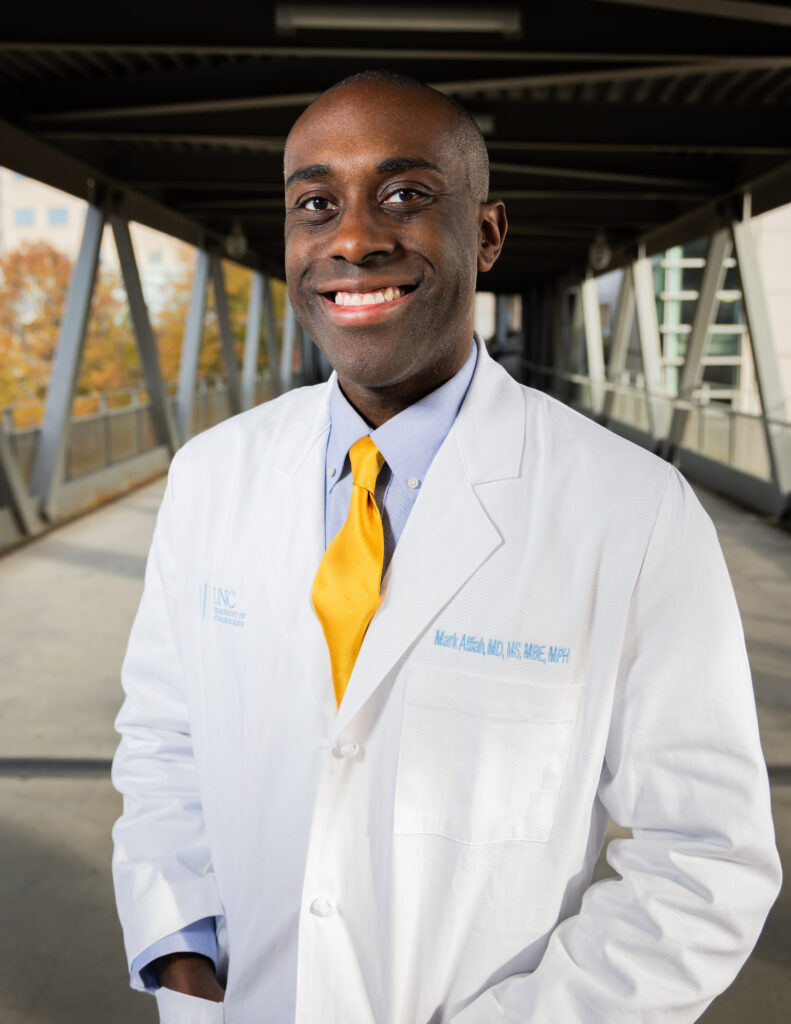

Director of Peripheral Nerve Surgery
Vice Chair, Ambulatory Operations
Assistant Professor
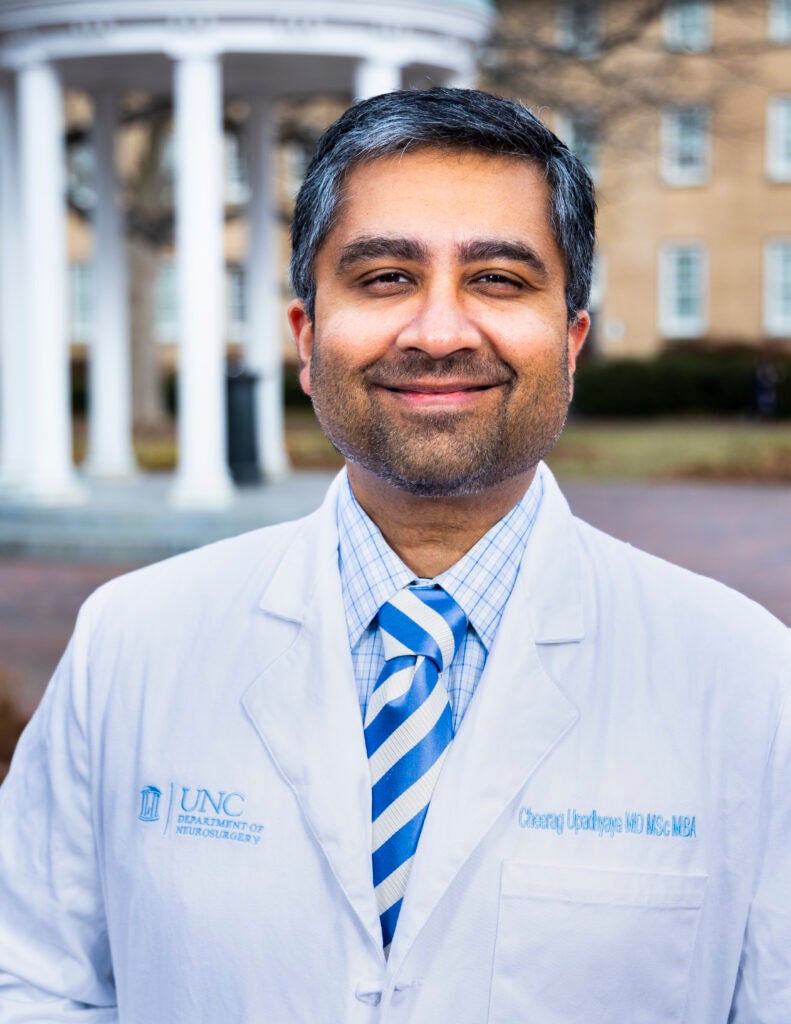

Vice Chair, Business Innovation and Strategy
Chief Transformation & Business Development Officer
Clinical Associate Professor
Medical Director of Supply Chain, UNC Health


PA-C
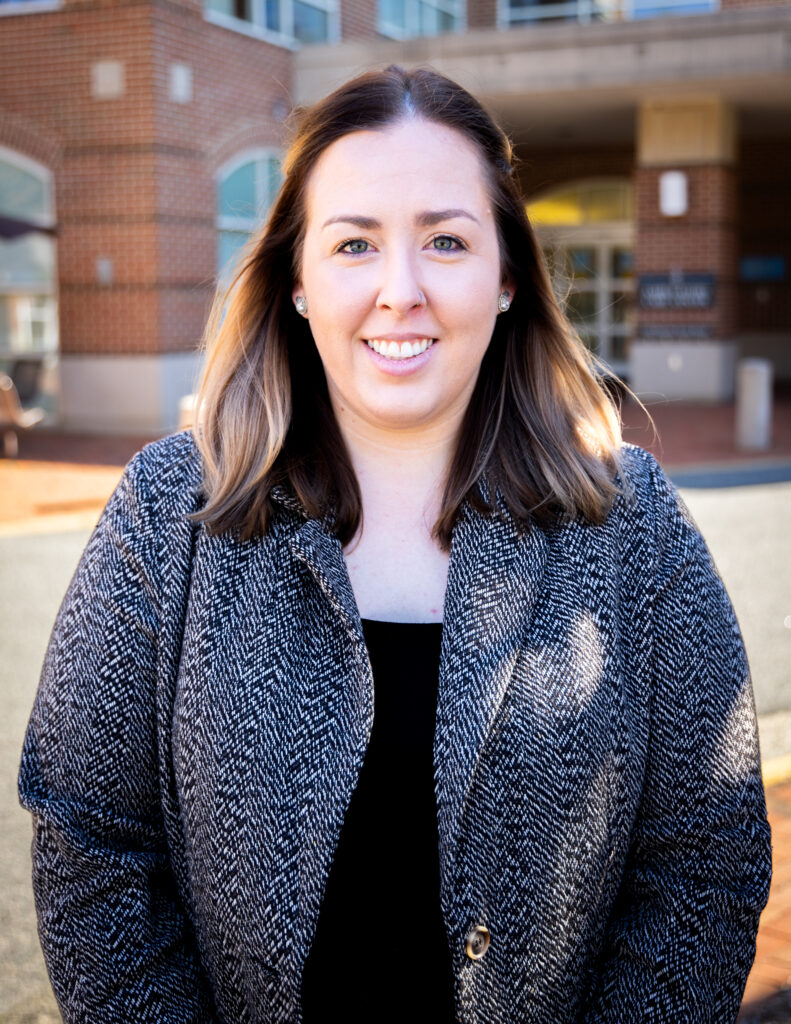

Nurse Coordinator, Spine/Nerve Surgery
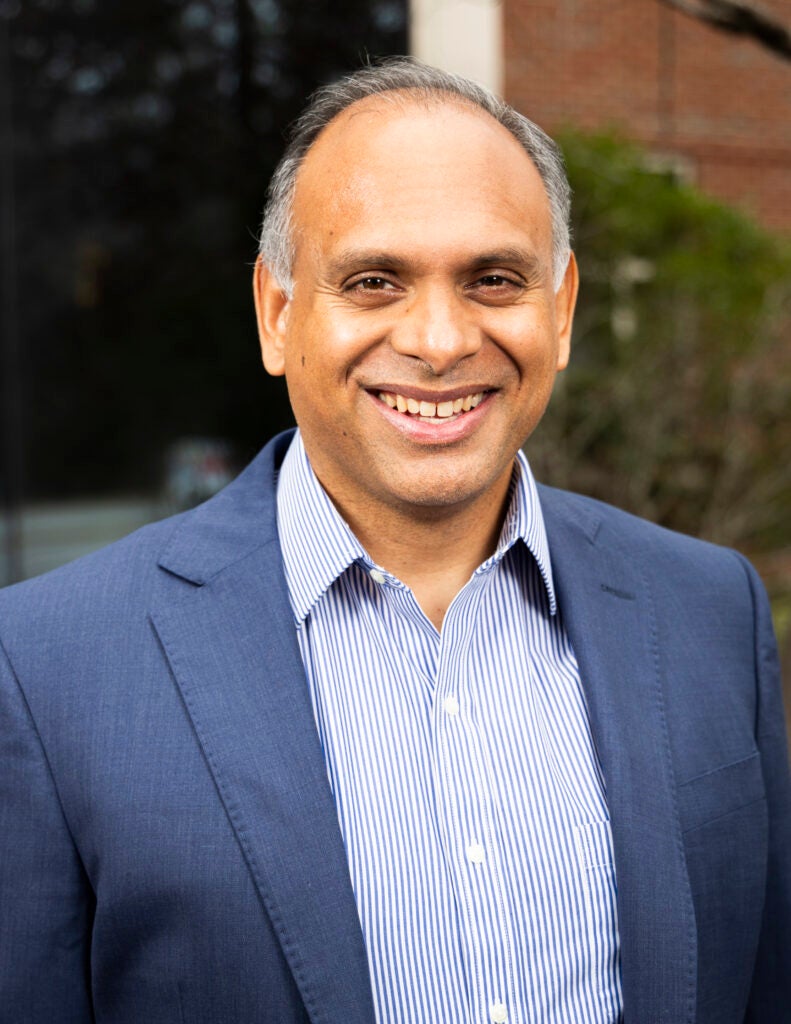

Associate Professor of Neurosurgery and Physical Medicine Rehabilitation


Assistant Professor


Assistant Professor
Spinal Cord Injury Medical Director


Assistant Professor


Assistant Professor